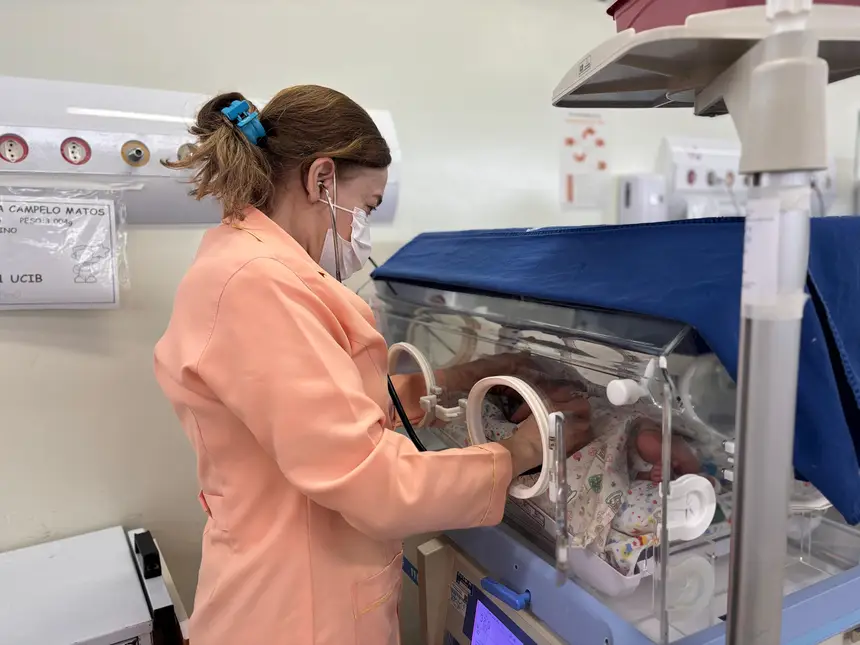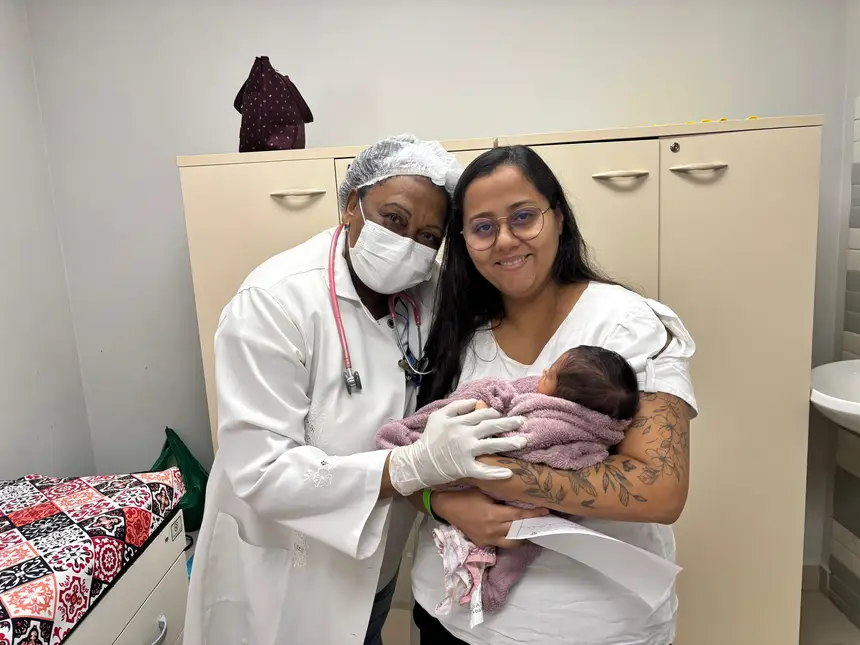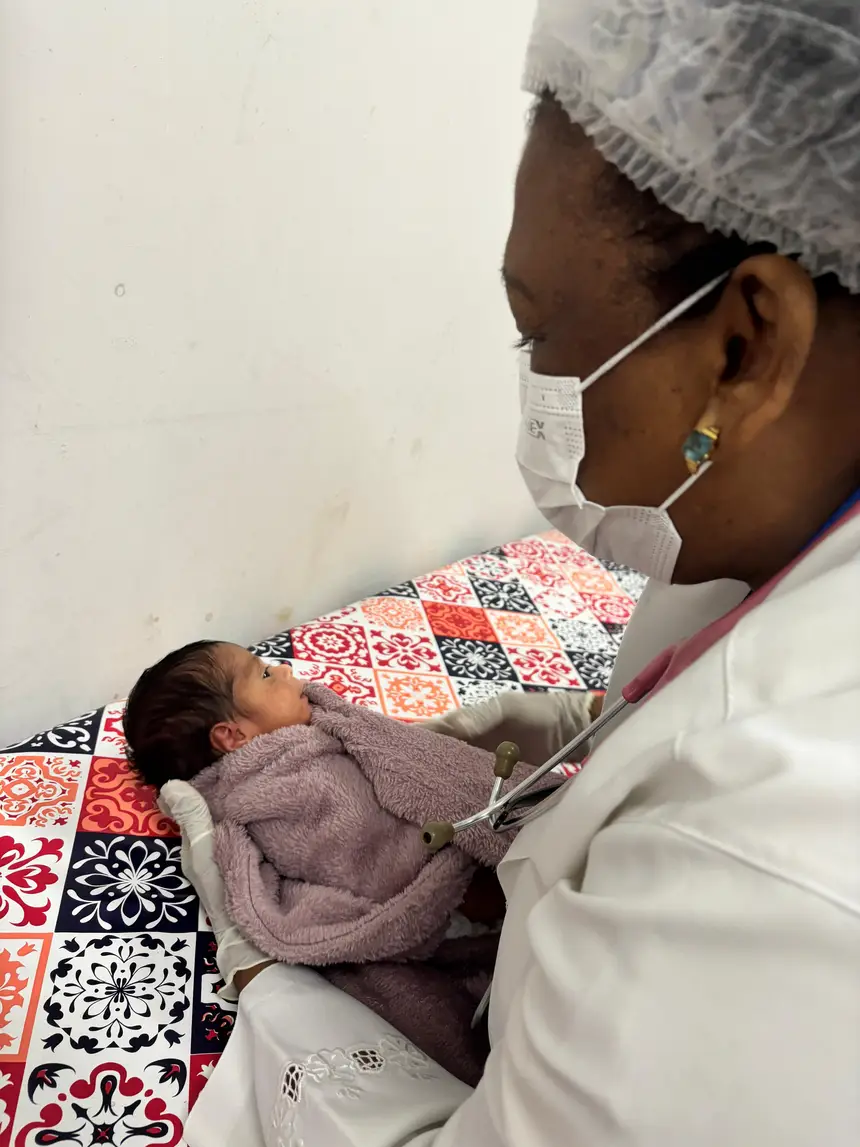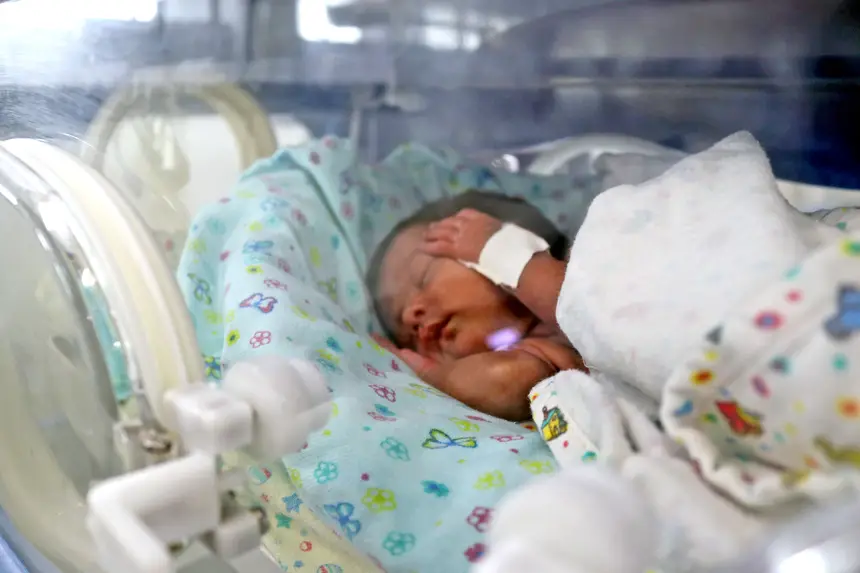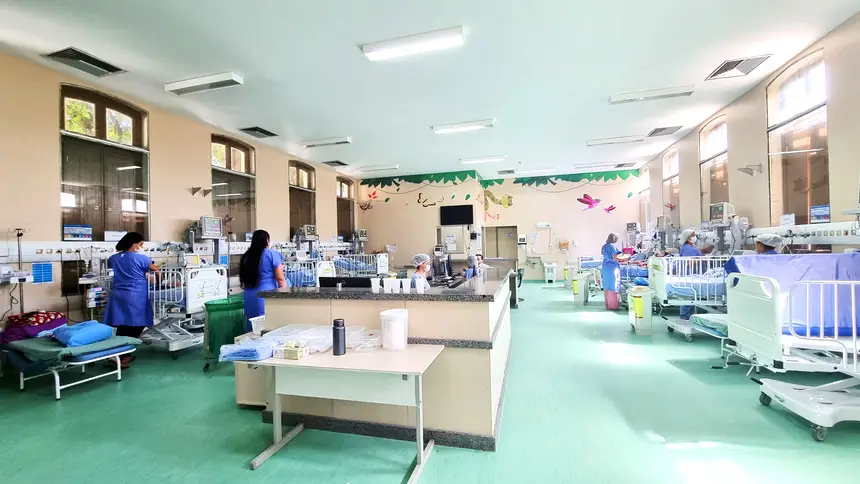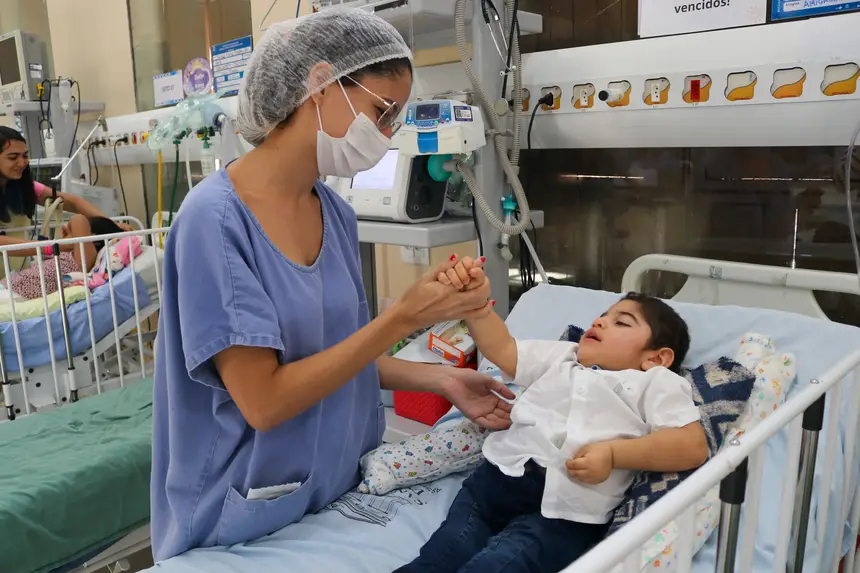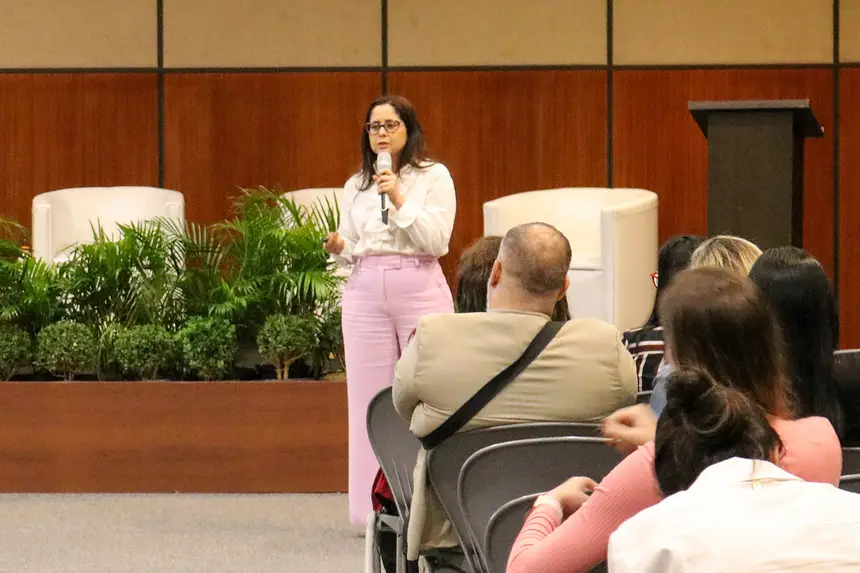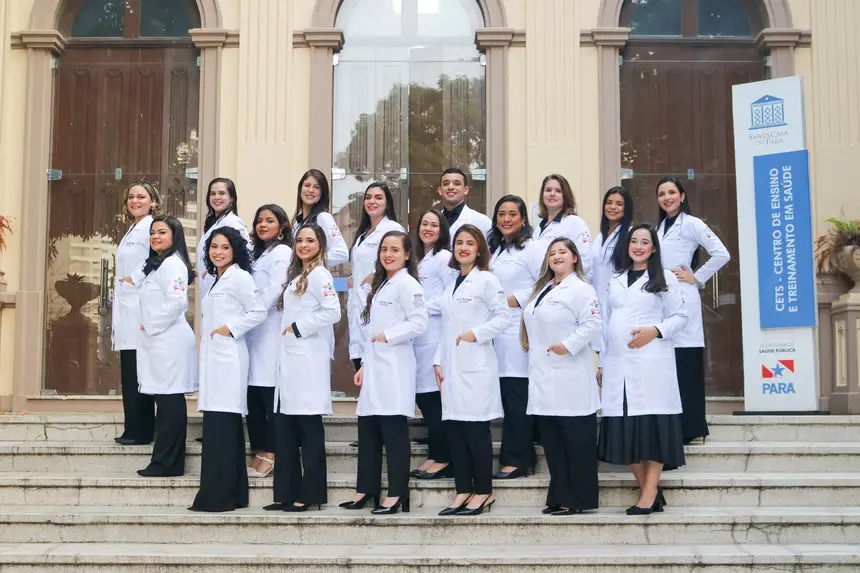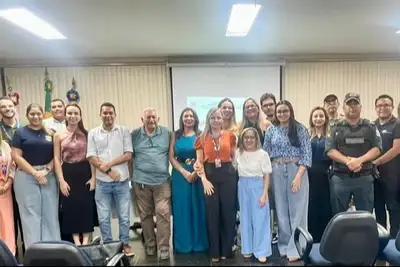Santa Casa do Pará contributes to the training of pediatric professionals in the Amazon
The Santa Casa Foundation plays a fundamental role in reducing infant and maternal mortality and in training health professionals
The Santa Casa de Misericórdia do Pará Foundation, founded on February 24, 1650, is one of the oldest health institutions in Brazil and a pioneer in health care in the Amazon. Recognized for its excellence in maternal and child care, the hospital became the Santa Casa de Misericórdia do Pará Foundation (FSCMPA) in April 1990 and has established itself as a reference in pediatric and neonatal care in the North region.
The Santa Casa Foundation plays a fundamental role in reducing infant and maternal mortality and in training health professionals. Celina Borges Maciel, one of the oldest pediatricians at the institution, reports that being a pediatrician is a dream come true since she was a child. “I would not be anything else in life but a pediatrician. I decided to be a doctor at six years old, after a consultation with an excellent professional. I said at that moment that I would be like that doctor. He looked like an angel. And from then on, my whole goal was to fight to be a pediatrician. And I succeeded.”
“Today I am super happy in my profession. Even today, I find joy in working in pediatrics, after 45 years of being graduated. I come here with joy because it makes me happy. Pediatrics is my life, it is my breath, it is the strong beat of my heart. That is what being a pediatrician means to me,” says Dr. Celina, emotionally.
For Ana Cristina Marques, manager of the pediatrics area of the institution, practicing pediatrics “is a calling from God and having an open heart to welcome, listen to, and care for the little ones with love, dedication, and humility. 'Pediatrics is emotion,' this short phrase from our master Dr. Sidney Barbosa summarizes everything we experience.”
“Each child I attend reminds me of the value of life, of purity, and of hope. Hope that gives us the certainty that life is reborn every day. Being a pediatrician is serving with the heart, not changing your essence of love for others, for the patient, and for the family. It is a gift I received and that I seek to honor with gratitude and faith,” said Dr. Ana Cristina.
In the 1970s, the Santa Casa in Pará took an important step by structuring its pediatrics service: a milestone for child health care in Pará. At that time, children were hospitalized in mixed wards, sharing spaces with adults, which posed a significant challenge to the quality of care.
In the 1980s, under the leadership of visionary doctors, such as Professor Dr. Salma Saraty and Dr. Pedrosina Filo Creão, the service was implemented, ensuring a more suitable and specialized environment for pediatric care.
“The goal has always been to ensure that no child is neglected, especially in the face of preventable problems,” recalls Salma Saraty. The sector became a regional and national landmark, promoting the reduction of neonatal mortality in the Amazon region and is currently one of the largest services in terms of neonatal beds in Brazil.
Reference Training - The Santa Casa do Pará began its medical residency program in pediatrics in 1977, establishing itself as one of the main centers for training pediatricians in Brazil. To date, more than 200 specialists have been trained in the program, a pioneer in the North of the country. The program adopted a three-year curriculum, ensuring greater depth in the competencies required by pediatric practice.
Erica Gomes, director of Teaching, Research, and Extension at the Santa Casa Foundation, highlights that the first pediatrics residency in the State was that of Santa Casa, in partnership with UFPA (Federal University of Pará). “Since then, dozens of professionals have been trained for specialized care for our children. In addition to being a reference in child health, with over a hundred beds dedicated to children from birth, serving various profiles and high complexity. We also have a highly qualified pediatric clinical staff committed to training new pediatricians and subspecialists in the field.”
“With the residency program, FSCMPA not only trains specialists but has transformed intensive pediatric care into a reference in the North region, directly impacting the quality of life of thousands of children,” emphasizes Professor Dr. Patrícia Carvalho, a physician who coordinates COREME (Medical Residency) at Santa Casa.
Ana Cláudia Gonçalves, a pediatrician and teaching preceptor, reveals that she always wanted pediatrics. “In this choice, I had references during my undergraduate studies, such as professors Mariane and Salma, who is from here, positively influenced me to pursue pediatrics. And pediatrics is exciting, it is captivating. When we start working with children and see significant progress with their improvement during their stay in the hospital.”
Ana Cláudia, who was a resident from 2003 to 2005 in pediatrics, reports that life is a constant learning experience. “We learn from our residents, and we also teach them things they learn in a general way in medicine. In pediatrics, they will have a focus on the baby, on the child, with their specificities, with their particularities. And we see a lot of them also in the area of knowledge.”
Fábio Amaral Júnior, a pediatric resident, informs that he started his residency journey five months ago. “Since then, I have been living an experience that goes beyond technical medicine. It is a journey of affection, listening, and presence. Caring for children is diving into a universe where every little gesture has immense meaning. Every smile, every look, and every achievement of the children teach us that caring goes far beyond treating diseases.”
“Being present, welcoming, protecting, and being part of the first chapters of lives full of possibilities. Being able to positively transform the life of each little patient and their families is a privilege that only pediatrics can provide, and this fills me with great fulfillment for the specialty I chose,” affirms Fábio.
Sanaeltho Teófilo Costa, a pediatric resident, states: “I fell in love with pediatrics the day I was able to witness for the first time the birth of a child, the first breath, the first cry, the delicacy and innocence of that little being.”
“Seeing a child being born and accompanying their growth and development, caring for their health and promoting their well-being in all aspects of their life is the most rewarding thing in medicine. Today's pediatrician protects, welcomes, and cares for the future of our society through what is most precious in the world, which is our children,” emphasizes resident physician Sanaeltho.
Pediatrician's Day
Pediatrician's Day, celebrated on July 27, marks the foundation of the Brazilian Society of Pediatrics (SBP) in 1910. It is a day dedicated to honoring the professionals who dedicate their lives to the health care of children and adolescents, from birth to adolescence.
The date reinforces the importance of the pediatrician's role, both in the prevention and treatment of diseases, as well as promoting healthy development and well-being of the pediatric population. The SBP even uses the date to promote campaigns and awareness actions about the relevance of pediatric follow-up throughout childhood and adolescence.
Vilma Hutim, a pediatrician at Santa Casa and a member of the SBP board, of the management group of the Public Policy Committee (2025-2028), emphasizes that Pediatrician's Day represents a mission in the care and defense of comprehensive care for children and adolescents, as well as their families in society. “The pediatrician is the professional who, according to our SBP statute, cares for children and adolescents. Adequate child development is correlated with perinatal factors, adequacy to childbirth, safe birth, neonatal screening, and monitoring of developmental milestones in the first years of life.”
“It is important that the pediatric professional persists in this interest and mission. We still have many children without adequate attention, and we need to fight for the dignity and integral living conditions of these children, with their own specificities. These children will be the citizens of the future. And our mission makes a big difference. You will be contributing to the formation of a new human being. Be welcoming, patient, resilient, in addition to listening to and welcoming families and understanding the entire social context,” advises Vilma Hutim.
Erica Gomes, who leads the Teaching, Research, and Extension board, is a pediatric rheumatologist, and reinforces that pediatrics is the specialty that cares for the person from birth until the end of adolescence. “This care is centered on the prevention of ailments, monitoring development, growth, evaluating affectivity and mental health, aiming for a healthy childhood and consequently positively impacting the health of the adult population, with a huge social contribution.”
“My training in Pediatrics was at Santa Casa, where I had the opportunity to learn not only about diseases and severe conditions but mainly to experience contact with human beings and their peculiarities. Dealing with children and their families in moments of pain and joy certainly brought me a great professional background,” says Erica.


